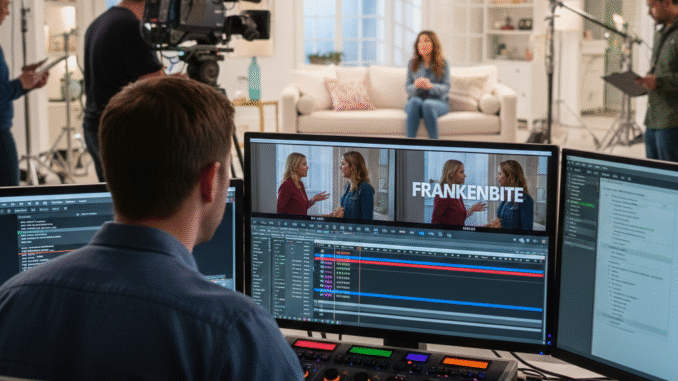
Reality television has been a dominant force in entertainment for decades, captivating audiences with its promise of unscripted drama, authentic emotions, and a voyeuristic peek into the lives of others. From the early days of “The Real World” to the current proliferation of shows like “Keeping Up With the Kardashians,” “Survivor,” and “The Bachelor,” the genre has evolved into a global phenomenon. Yet, despite its name, the “reality” in reality TV is often a carefully constructed illusion, meticulously crafted by producers and editors to maximize entertainment value. Understanding how this magic trick is performed doesn’t diminish its appeal for many; in fact, it often deepens our appreciation for the artifice.
The notion that reality TV is entirely unscripted is, for the most part, a myth. While contestants and participants might not be handed a dialogue to memorize, the environment in which they operate, the situations they encounter, and even their emotional responses are frequently guided, influenced, or outright manipulated. One of the primary tools in a producer’s arsenal is casting. Before a single scene is shot, immense effort goes into selecting individuals who possess distinct personalities, potential for conflict, or compelling backstories. A good cast is a volatile mix, designed to spark drama naturally, or at least, semi-naturally. Producers often conduct extensive interviews, probing for insecurities, past traumas, or strong opinions that can be exploited later for narrative purposes.
Once filming begins, the “scripting” becomes more subtle but no less impactful. This often involves scenario planning. While not a direct script, producers might set up specific challenges, events, or social gatherings designed to push certain characters together or create tension. Think of a “Bachelor” contestant being sent on a romantic one-on-one date with someone they barely know, or “Survivor” contestants facing a task that forces them to rely on an untrustworthy ally. These situations are not random; they are engineered to elicit specific reactions and advance potential storylines. Participants are often given “prompts” or “suggestions” by production staff, nudging them towards a desired conversation or confrontation without explicitly telling them what to say. A producer might ask leading questions during an interview, such as, “How did you really feel when [another contestant] said that?” knowing full well it will fuel a simmering conflict.
Editing is perhaps the most powerful tool for shaping reality. Hours upon hours of raw footage are condensed into a 40-minute episode, giving editors immense power to control the narrative. This is where “frankenbiting” comes into play – a technique where short audio snippets of dialogue are stitched together from different sentences or even different conversations to create an entirely new statement. A contestant might say, “I really like John, but sometimes he’s annoying,” and later, “I’m not sure if I trust him.” An editor could combine these to create a seemingly direct, damaging quote about John. Visual editing can also manipulate perception; a prolonged shot of a participant’s angry face, even if they were simply reacting to something off-camera, can be used to imply a specific emotion related to the ongoing narrative. Music, sound effects, and voice-overs further enhance the emotional impact, guiding the audience’s feelings towards specific characters or events.
Moreover, confessional interviews are critical. These are segments where participants speak directly to the camera, often providing commentary on events that have already occurred or expressing their inner thoughts. Producers skillfully guide these confessionals, asking questions that frame the narrative, provide exposition, or elicit dramatic reactions. A contestant might be asked to re-explain a situation from a particular angle, or to articulate a feeling that they didn’t explicitly show on camera during the actual event. These interviews are often filmed days or even weeks after the main action, allowing producers to craft cohesive storylines with hindsight, sometimes even prompting participants to create “sound bites” that fit the predetermined plot.
So, why do we continue to tune in, knowing that much of what we see is manipulated? Several psychological factors contribute to reality TV’s enduring appeal. Firstly, there’s the human desire for connection and relatability. Even if the situations are heightened, the underlying emotions – love, jealousy, ambition, betrayal – are universal. Viewers can see reflections of their own lives or desires, albeit in exaggerated forms. Secondly, the “water cooler” effect is powerful. Reality TV provides shared cultural touchstones, giving people something to discuss with friends, family, and colleagues. It fosters a sense of community around shared viewing experiences.
Thirdly, there’s the inherent drama and escapism. Life can be mundane; reality TV offers a heightened sense of excitement and conflict that provides a welcome distraction. It allows us to experience intense emotional rollercoasters from the safety of our living rooms. Finally, there’s the curiosity about human behavior. We are fascinated by how people react under pressure, how they navigate social dynamics, and how their personalities clash or align. Even with the knowledge of manipulation, the core interactions often reveal genuine human traits.
In conclusion, reality TV operates in a fascinating grey area between genuine human experience and carefully constructed narrative. It’s a testament to the skill of producers and editors that they can take raw footage and sculpt it into compelling stories that resonate with millions. Understanding the “how” behind the magic doesn’t necessarily break the spell; instead, it offers a deeper appreciation for the complex interplay of human nature and strategic entertainment production that keeps us all glued to our screens.

Leave a Reply